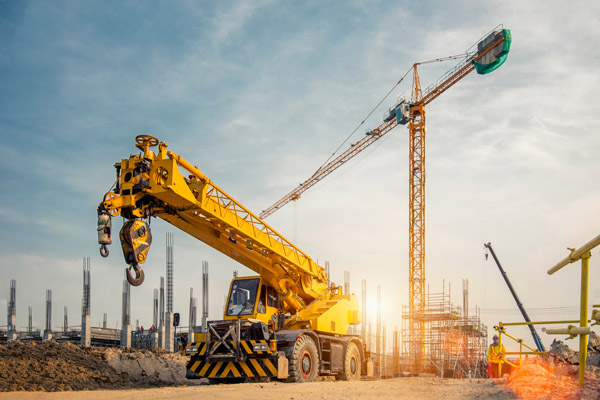Stay Safe on the Job: Crane Operator Safety Tips

When working with heavy machinery, safety must be at the top of every operator’s mind. Accidents, whether with a gigantic tower crane or a much smaller mobile crane, can yield terrible results. With the right training and mindset, though, you and your crew can remain safe through the length of your project. While crane safety training by a certified professional is essential for a full understanding, here are three major crane operator safety tips:
1. Use the Right Crane
It’s always important to use the correct tools for the job. Not only could you be risking your and your coworkers’ safety and well-being, but you could also damage the tool itself—or the thing you’re working on. That’s true of knowing which crane to use as well. For instance, if you have soft ground, the best crane to use might be a crawler crane, which has treads instead of rubber wheels. This means they can travel best in those conditions. But if your jobsite has rough terrain, it’s better to go with a rough-terrain or all-terrain crane. Each jobsite is unique, so if it’s up to you to choose the crane, be sure that you have all the information about the site before you choose which crane to bring to the project.
2. Practice Safety as Part of a Daily Routine
Safety needs to be part of your routine. Not only can the crane become a hazard if not handled correctly, but the load it carries can become dangerous as well. Therefore, make sure that you have pre-start checks at the beginning of every workday. This includes checking tire condition, oil levels, the battery, the air reservoir, seat belts, and other points depending on the type of crane.
Once that’s done, there should also be an engine start-up check. Examine the pressure gauge, fuel levels, turn signals, horn, suspension, and brake system. Once that’s done, you should also do a system safety check, where you inspect the outriggers, the rated capacity limiter, the anti-two block, and all the hydraulic systems.
There is usually a list of checks to make that may exceed 40 points, but it’s worth it to be certain there won’t be any dangerous surprises with your equipment during the day.
3. Stability
Whether you’re setting up a mobile or a tower crane, you want to be certain the stability of the crane won’t be compromised during your workday or throughout the project. Be sure to follow the manufacturer guidelines to determine how far to extend the outriggers, and never place outriggers over voids or unsteady ground. You also need to use outrigger pads or crane pads underneath outriggers. These are safety tools a crane operator uses to stabilize the crane, and the size and thickness of the pads can vary depending on the ground around the crane.
At West Coast Training, teaching crane safety is part of each of our trainings. Our students undergo rigorous heavy equipment and crane safety training and certification programs, ensuring they understand rules and processes that promote safe working habits. If you’re interested in a heavy equipment operator career, check out our courses today.
